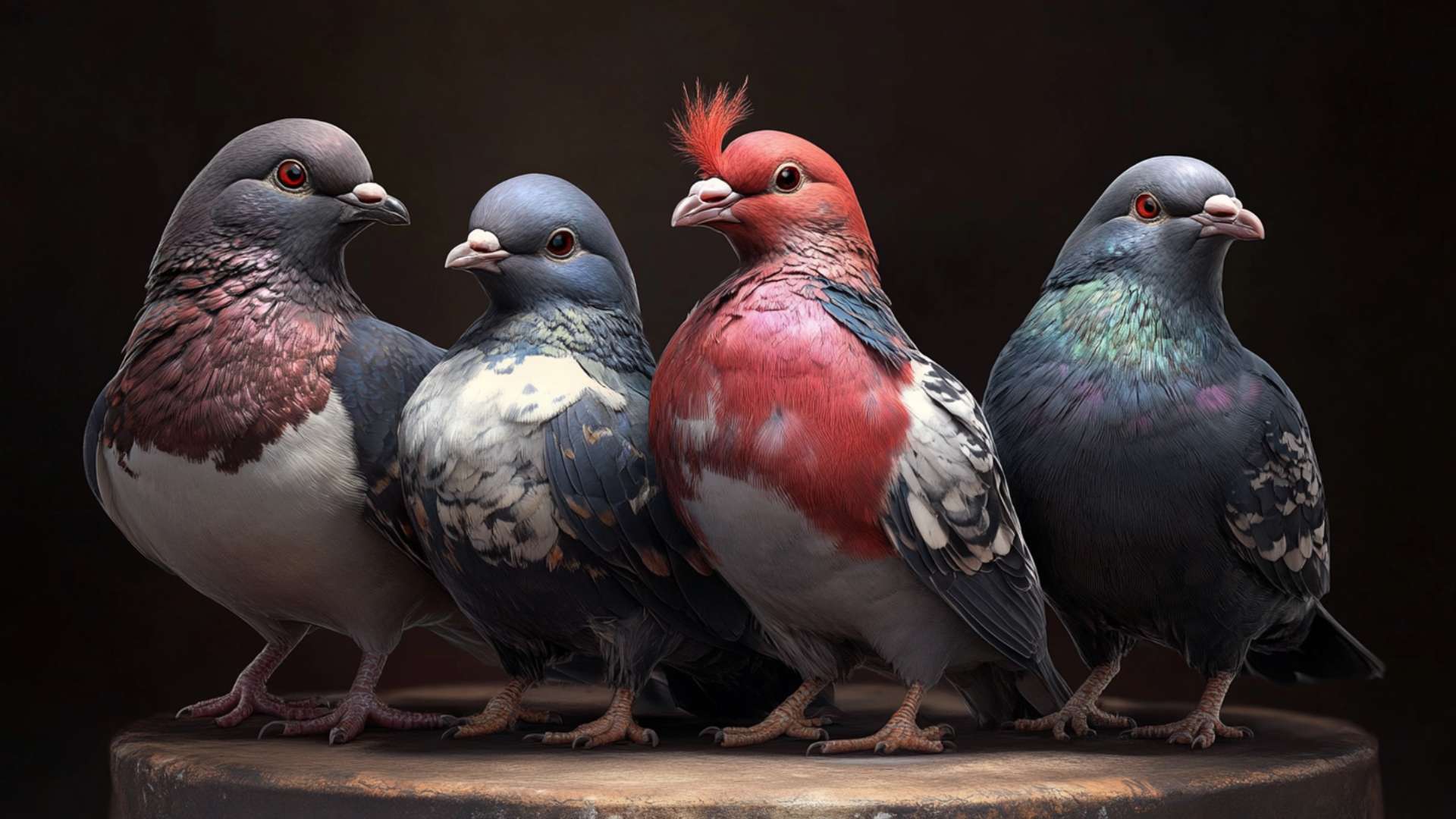Few birds have captivated urban dwellers quite like the humble pigeon. Whether you love them or loathe them, these feathered creatures are an undeniable presence in city streets around the world.
Their adaptability to urban environments and their ability to thrive amidst concrete jungles have earned them a special place in our collective consciousness. However, as fascinating as pigeons are, there is one question that often piques our curiosity: How long do pigeons live?
Fascination with pigeons as urban dwellers
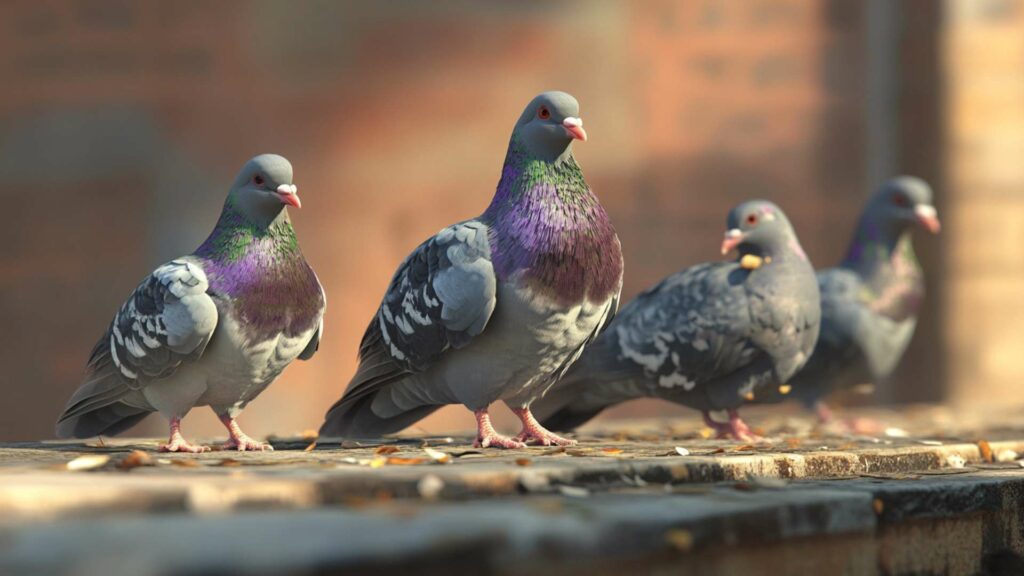
Living in cities teeming with life and activity, we often find ourselves intrigued by the creatures that share our space. Pigeons, with their cooing calls and graceful flight patterns, have become symbolic of urban life—a constant reminder that nature has found its niche amidst our bustling concrete habitats.
These birds can be found perched on historic landmarks, swooping across busy streets, and even nesting on windowsills. Part of the fascination with pigeons lies in their remarkable adaptability to city life.
Unlike many other animals forced out of their natural habitats by human encroachment, pigeons have thrived in this new environment. They have adapted their behavior and lifestyle to take full advantage of the opportunities presented by urban landscapes.
Curiosity about their lifespan
As we observe pigeons going about their daily routines in our cities—building nests, foraging for food scraps on sidewalks—it’s only natural to wonder how long these avian denizens can survive amidst the hustle and bustle of urban existence. The average lifespan of a pigeon living in the wild is generally estimated to be around 3-5 years. However, this average can vary significantly depending on various factors such as genetics and environmental conditions.
So why are we so interested in the lifespan of pigeons? Perhaps it is because they serve as a symbol of resilience, adaptability, and survival.
Their ability to thrive amidst the concrete jungle reminds us that life finds a way even in the most challenging circumstances. By exploring the factors that influence pigeon longevity, we can gain further insight into their remarkable ability to coexist with us in our urban habitats.
General Overview of Pigeon Lifespan
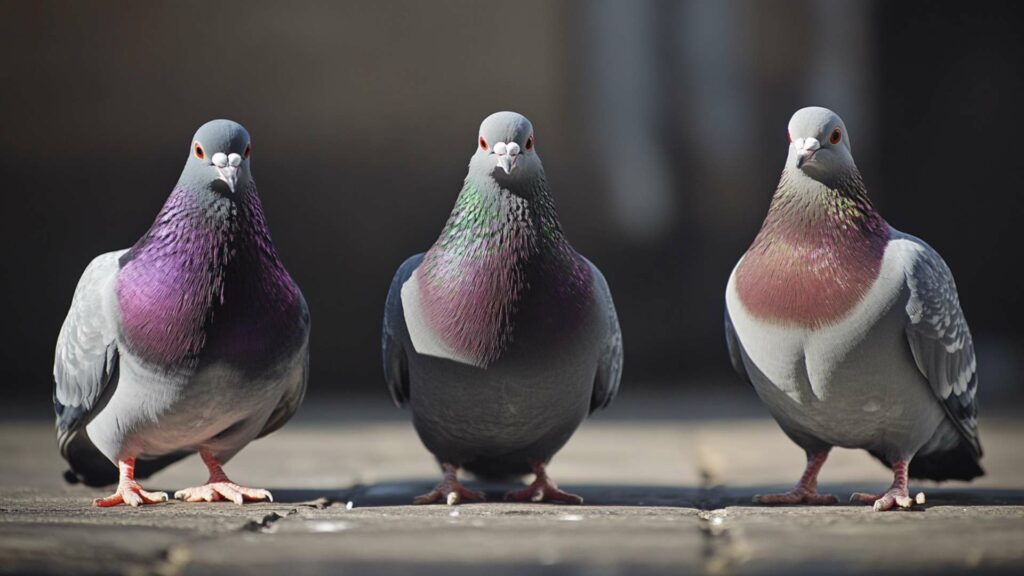
Average lifespan of pigeons in the wild (3-5 years)
When pondering the question, “How long do pigeons live?” we must first delve into the general lifespan of these fascinating creatures. The average feral pigeon, also known as a rock dove, typically lives anywhere from 3 to 5 years in the wild.
This relatively short, pigeon life cycle and expectancy may come as a surprise to those who encounter these urban dwellers regularly. Unlike their domestic counterparts, feral pigeons face numerous challenges that significantly impact their longevity.
Their lives are far from easy; they navigate high rise buildings and bustling city streets daily, constantly exposed to potential threats and hazards. Numerous factors contribute to this relatively brief existence, making it even more remarkable when certain individuals surpass this expected lifespan.
Factors influencing pigeon longevity
The longevity of a pigeon’s life is influenced by various interconnected factors that dictate their survival in different environments. Genetics play a significant role in determining how long these birds will live.
Selective breeding of domestic pigeons has resulted in some individuals living up to 15 years under ideal conditions, but this is an exception rather than the norm for feral pigeons. Genetic variations can affect disease resistance and overall health among pigeon populations.
Individuals with robust immune systems have a better chance of warding off infections and other illnesses that could prove fatal. Additionally, some genetic traits may help them adapt better to their surroundings or find adequate shelter and food sources.
Environmental factors also strongly impact pigeon longevity. Urban versus rural habitats present distinct challenges for these avian inhabitants.
In cities, where food scraps are plentiful due to human activity and waste management practices, pigeons may benefit from ample nourishment that supports their survival despite other risks they face daily. In contrast, rural environments offer fewer resources for pigeons to thrive.
Competition for food is higher, and predators may have a stronger presence, further reducing their average lifespan. Additionally, exposure to pollution, contaminated food sources, and toxins can pose significant health risks that impact survival rates.
Understanding the factors that influence pigeon longevity provides valuable insights into their lives and helps us appreciate the resilience and adaptability of these remarkable creatures. In the following sections, we will explore in more detail the mortality rates and causes of death among pigeons, as well as exceptional cases where certain individuals have defied expectations and lived considerably longer than their peers.
Factors Influencing Pigeon Longevity
Genetics and inherited traits:
When it comes to how pigeons breed, genetics play a significant role in determining their lifespan. Domestic pigeons, which are bred for specific traits like color or flying ability, tend to live longer than their feral counterparts. These selectively bred pigeons can often reach up to 15 years of age, which is remarkable considering the average lifespan of pigeons in the wild is around 3-5 years.
The role of selective breeding in increasing domestic pigeons’ lifespan cannot be overstated. Over generations, breeders have carefully chosen pairs of female pigeons with desirable characteristics, creating lines of pigeons that are more resilient and long-lived.
This deliberate selection based on desirable traits has contributed to the extended lifespan seen in domestic pigeon populations today. In addition to selective breeding, genetic variations also play a crucial role in determining a pet pigeon’s longevity.
Just like humans, some individuals may inherit genes that predispose them to better resistance against diseases and overall better health. These genetic variations enable certain pigeons to thrive even when faced with environmental challenges or health risks that might shorten the lifespan of others. Environmental factors
The environment where pigeons live has a direct impact on their lifespans. Urban versus rural habitats can make a significant difference in how long feral pigeons live. While city streets provide abundant food sources for these birds through discarded food waste and accessible nesting spots on buildings and structures, they also expose them to potential dangers and pollutants such as pollution from traffic or industrial areas.
In contrast, rural areas often offer more natural habitats with less human interference and fewer predators lurking about. Pigeons residing in these regions may experience reduced exposure to toxins and enjoy better air quality, which can contribute to longer lifespans.
Additionally, the availability of food sources is another vital factor in pigeon survival rates. Access to a diverse range of food options ensures a healthier diet and can increase their chances of living longer.
Overall, while genetics and inherited traits provide pigeons with inherent advantages or disadvantages, the environment they inhabit also significantly impacts their lifespan. By considering both aspects, we gain a better understanding of why some pigeons live longer than others and how we can contribute to fostering healthier pigeon populations.
Pigeon Mortality Rates and Causes of Death
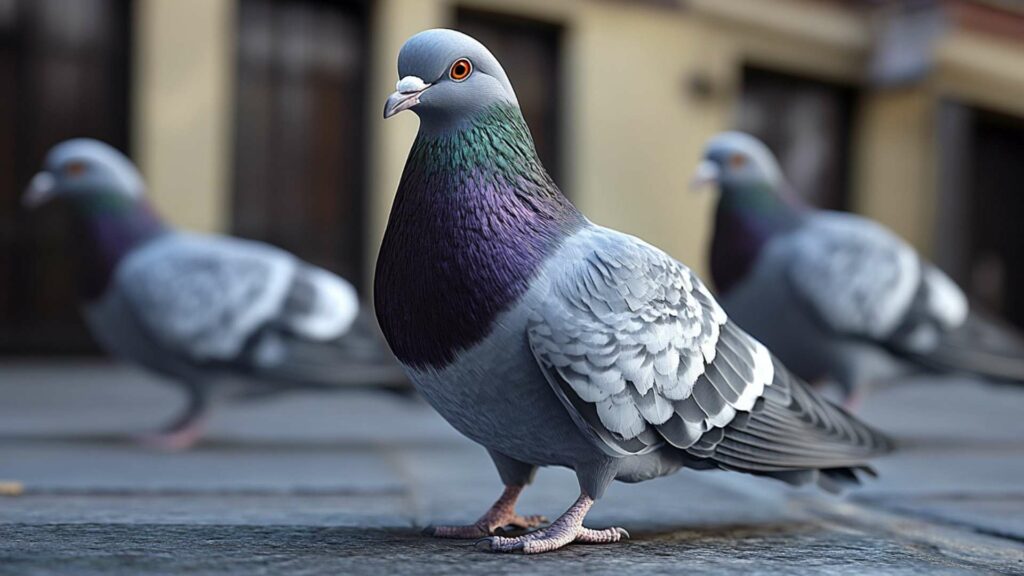
Predators and Natural Threats to Pigeons’ Lives
In the animal kingdom, pigeons are not exempt from facing threats to their lives. Predators, both aerial and terrestrial, pose significant risks to their existence. Among other birds and avian predators, birds of prey like hawks and falcons are known to have a considerable impact on pigeon populations.
These majestic hunters, with their sharp talons and keen eyesight, can swiftly snatch unsuspecting pigeons mid-flight or ambush them while perched on trees or buildings. On the ground, pigeons face vulnerability from various mammalian predators other captive birds, cats, dogs, and rats.
These opportunistic hunters target pigeons that may be nesting on rooftops or searching for food in urban areas. The stealthy nature of cats allows them to approach pigeons undetected, often resulting in swift attacks that leave little chance for captive pigeons to escape.
Similarly, dogs with a strong prey drive may chase down fleeing pigeons with incredible agility. Additionally, rats: cunning creatures that they are – can be a threat especially when targeting defenseless nestlings.
Human-Related Factors Affecting Pigeon Mortality Rates
Unfortunately for our feathered friends, humans also play a role in impacting pigeon mortality rates. One key factor is pollution – the increasing levels of air pollution due to industrialization negatively affect the respiratory health of not only humans but also birds like pigeons who reside in urban areas.
Inhaled pollutants can cause respiratory problems over time which may shorten their lifespan. Another significant human-related threat is the presence of toxins and contaminated food sources within a pigeon’s environment.
Due to their scavenging nature and ability to adapt to various feeding habits, pigeons often come into contact with discarded waste containing harmful substances such as pesticides or heavy metals. Additionally, accidental deaths are not uncommon among pigeons due to collisions with vehicles or buildings.
As urban areas expand and traffic congestion increases, these unfortunate accidents become more prevalent. Pigeons have an innate ability to navigate through tight spaces, but the fast-paced world humans have created can sometimes prove fatal for these birds.
In order to ensure the longevity of pigeons in human-dominated environments, it is crucial that we take steps to minimize these threats. Implementing measures such as reducing pollution levels, creating safe habitats free from predators, and providing proper care for injured or orphaned pigeons can go a long way in securing their well-being.
Remember, these endearing creatures have been part of our lives for centuries, evolving from their wild pigeon ancestors (also known as rock doves) into the diverse range of breeds we now see. Understanding and respecting the average feral pigeon’s lifespan helps us appreciate the importance of their place in our shared ecosystem while inspiring us to protect them from harm.
Special Cases: Longest Living Pigeons on Record
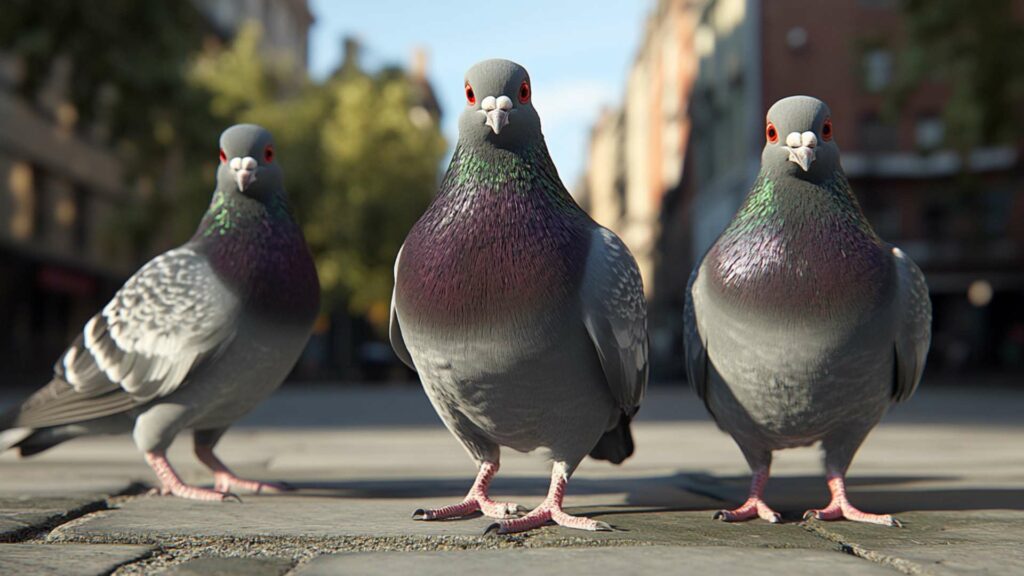
Exploring exceptional cases where pigeons lived beyond the average lifespan:
Pigeons, with their resilience and adaptability, have been known to surprise us with their longevity. While the average lifespan of a wild pigeon ranges from 3 to 5 years, there have been instances where these wild birds have defied expectations and lived well beyond that. One remarkable case stands out among them all – the story of “Oldest Pigeon.”
The story of “Oldest Pigeon” – a remarkable bird that lived for over three decades.
In the bustling city streets, amidst the hustle and bustle, one pigeon captured the hearts of many observers: The Oldest Pigeon. This resilient avian soul managed to survive for over thirty years, which is truly extraordinary in its own right.
The incredible longevity of this feathered creature left experts astounded. Examining the factors that contributed to this pigeon’s long life reveals several remarkable aspects.
First and foremost, genetics plays a vital role. The Oldest Pigeon came from a lineage known for its exceptional longevity; it had inherited robust genes that allowed it to withstand various environmental pressures.
Another crucial factor was proper care and nutrition. This resilient bird had access to an abundant supply of food throughout its life span.
Unlike many feral pigeons struggling to find food in urban environments, this lucky creature had access to nourishing seeds and grains regularly. Furthermore, avoiding potential predators was essential for its survival in a world fraught with danger.
While domestic cats and other predators often pose threats to pigeon populations, our beloved Oldest Pigeon managed to evade such perils through keen awareness and quick flight maneuvers whenever danger lurked nearby. The absence of extreme heat or harsh living conditions significantly contributed to this bird’s longevity.
Pigeons are well-adapted to various climates, but extreme weather conditions can take a toll on their health and reduce their lifespans. The Oldest Pigeon, lucky in its choice of habitat, avoided such challenges and thrived in an environment that provided the ideal balance of temperature and shelter.
The story of the Oldest Pigeon serves as a testament to the resilience and adaptability of these remarkable birds. While the average lifespan for pigeons may be relatively short, there exist exceptional cases where they defy expectations and live for decades.
Genetics, proper care, nutrition, predator avoidance, and favorable environmental conditions all contribute to such extraordinary longevity. The tale of the Oldest Pigeon reminds us of nature’s awe-inspiring ability to surprise us with its marvels even amidst our busy human world.
Pigeon Lifespan Myths Debunked
Common misconceptions about pigeon longevity:
Myth 1: Pigeons only live for a few months
Contrary to popular belief, pigeons have a much longer lifespan than just a few months. While the average feral pigeon or rock dove may live around 3 to 5 years in the wild, domestic pigeons can live significantly longer, sometimes up to 15 years or more.
This misconception likely arises from the observation of young pigeons that may not survive their first year due to predation or other factors. However, with proper care and protection from natural predators, pigeons can enjoy a relatively long life.
Myth 2: Pigeons die easily from diseases and pests
Another common myth is that pet pigeons are highly susceptible to diseases and pests such as bird mites. While it’s true that wild pigeons face certain health risks due to exposure to various environmental factors and parasites, domestic pigeons kept by attentive owners are typically provided with adequate healthcare and preventive measures.
Regular veterinary check-ups, proper nutrition, and clean living conditions help mitigate these risks significantly. With good care, many racing pigeons have been known to reach sexual maturity as early as six months old and continue breeding successfully for several years.
Myth 3: Pigeons cannot survive in urban areas
It is often assumed that urban areas pose too many challenges for pigeons’ survival since they are associated with high-rise buildings and limited food sources. However, this is not entirely accurate.
Pigeons have adapted remarkably well to urban environments by finding alternative food sources such as discarded human food or bird feeders provided by caring individuals. They also utilize rooftops and ledges for nesting purposes.
Conclusion
The lifespan of pigeons is often underestimated due to various misconceptions. While the average feral pigeon may have a relatively short lifespan in the wild, domestic pigeons under proper care and protection can live much longer. Contrary to common belief, pigeons are not fragile creatures prone to early death from diseases or pests.
With attentive owners and necessary precautions for captive birds, they can thrive for many years. So, the next time you spot a pigeon perched on a city rooftop or soaring through the sky, remember that these birds are resilient beings capable of adapting to diverse environments.
Their presence adds charm to our urban landscapes and serves as a reminder of nature’s ability to coexist with human habitation. Let us appreciate these feathered companions and celebrate their remarkable longevity.
Guard against Pigeon Intrusions with D-Termination: Las Vegas’ Top Pest Control Choice!
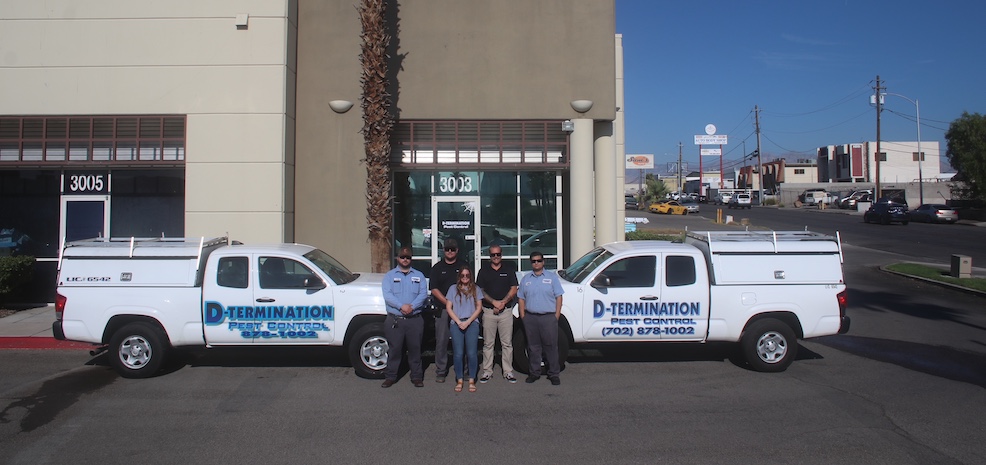
If you’re contending with pigeon problems, D-Termination is your solution. Our skilled team excels in pigeon deterrence, revitalizing the cleanliness and integrity of your surroundings. Bid farewell to pigeons today – opt for D-Termination for potent pest control.
Get in touch with us at 702-919-6310 or visit dtermination.com to secure your pigeon control service and take back your space from these unwelcome pests.
Frequently Asked Questions:
Pigeons typically live for around 3 to 5 years in the wild and up to 15 years in captivity, so 20 years is unusual.
Outdoor pigeons generally have a lifespan of 3 to 5 years.
Pigeons can live up to 15 years or more in captivity with proper care.
Pigeons do have the ability to remember faces and recognize individuals.

